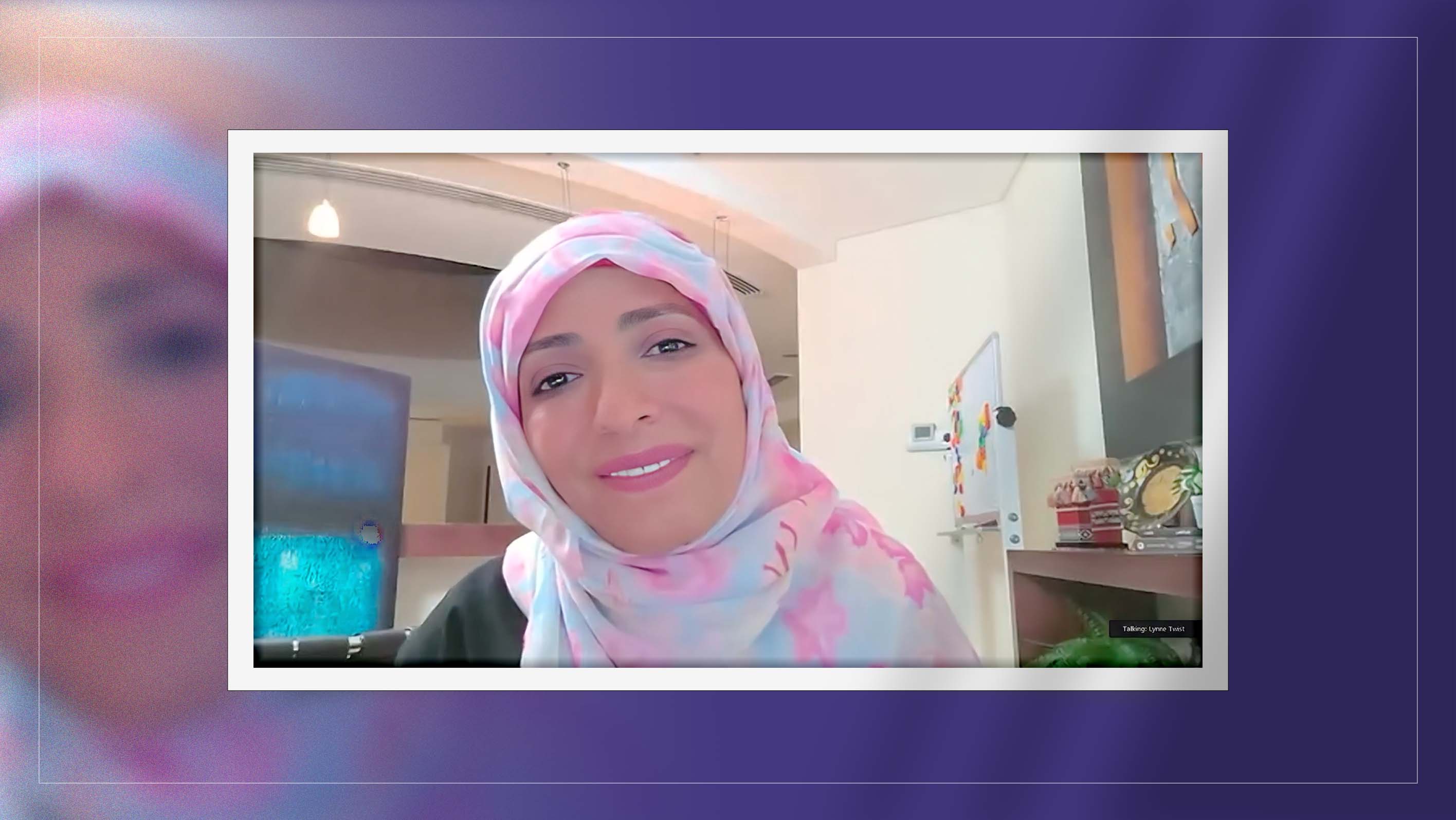Human rights fighter and Nobel Peace Prize laureate Tawakkol Karman spoke at the “Rise and Act” webinar organized by The Soul of Money Institute on November 12, 2025 and moderated by Lynne Twist and Sara Vetter, responding to questions on civic awakening, democratic accountability, generational responsibility and the ethical use of capital.
Karman framed the webinar’s title as central to her activist practice, tracing the call to “wake up and move” back to the street protests she helped organize in Yemen. She said the appeal to collective awakening animated mass mobilizations that confronted systemic repression and corruption, and argued that a unified public voice remains the essential engine of change.
Turning to the ethics of finance, Karman praised the host institute’s effort to rethink money’s purpose and urged a redefinition of capital away from greed and toward human service. She identified three interconnected, existential crises confronting the world: climate breakdown and environmental collapse; democratic backsliding and human-rights erosion; and widening inequality. Addressing these, she called for coordinated action from individuals, civil society, the private sector and governments.
Karman recounted learning of her 2011 Nobel Peace Prize while in a protest tent in Sanaa, describing the award as recognition of a collective, nonviolent struggle rather than personal glory. She stressed that the prize marked the start of greater responsibility, not an endpoint.
On resilience, Karman named three sustaining forces — faith, hope and conviction — and directed a message to young people worldwide: stand with communities, ask what tangible impact you create, and begin change from the circle closest to you. She insisted that leadership is defined by courage and responsibility, not by wealth.
Criticizing Western alliances with authoritarian regimes, Karman argued such partnerships undermine democratic values both abroad and at home and warned that rising hate speech and polarization in western societies threaten their moral credibility. She urged the United States and other democracies to support peoples rather than prop up tyrants.
Describing practical social interventions, Karman said she has helped build schools and rehabilitate health and educational facilities with limited resources, and she urged business leaders and philanthropists to deploy capital in ways that materially improve lives. She warned that extreme concentration of wealth functions as a contemporary form of domination that erodes opportunity and hope.
Karman framed climate change as a moral imperative, calling on corporations and citizens to accept stewardship responsibilities because environmental collapse deepens poverty and fuels conflict.
She closed the webinar with a global appeal for solidarity: “We are in one struggle for freedom and dignity. Your fight is our fight; your freedom is our freedom.” She invited youth everywhere to carry the banner of change and to resist allowing economic and political divides to drive further conflict.

